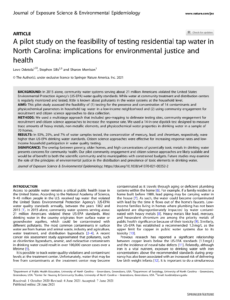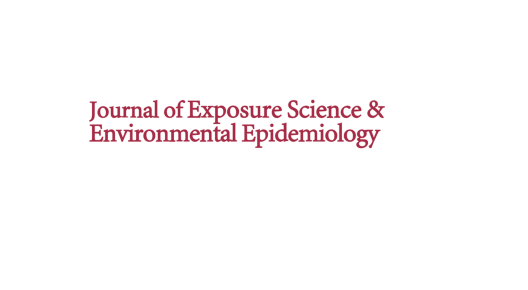 Abstract
Abstract
Background
In 2015 alone, community water systems serving about 21 million Americans violated the United States Environmental Protection Agency’s (US-EPA) water quality standards. While water at community treatment and distribution centers is regularly monitored and tested, little is known about pollutants in the water systems at the household level.
Aims
This pilot study assessed the feasibility of (1) testing for the presence and concentration of 14 contaminants and physicochemical parameters in household tap water in a low-income neighborhood and (2) using community engagement for recruitment and citizen science approaches to data collection.
Methods
We used a multistage approach that included geo-mapping to delineate testing sites, community engagement for recruitment and citizen science approaches to increase the response rate. We used a 14-in-one dipstick test designed to measure trace amounts of heavy metals, non-metallic elements, and physicochemical water properties in drinking water in a sample of 70 homes.
Results
In 50%, 25%, and 7% of water samples tested, the concentration of mercury, lead, and chromium, respectively, were higher than US-EPA drinking water standards. Citizen science approaches were effective for increasing response rates and low-income household participation in water quality testing.
Significance
The overlap between poverty, older homes, and high concentrations of potentially toxic metals in drinking water presents concerns for community health. Our pilot community engagement and citizen science approaches are likely scalable and would be of benefit to both the scientific community and to municipalities with constrained budgets. Future studies may examine the role of the principles of environmental justice in the distribution and prevalence of toxic elements in drinking water.
Odetola, L., Sills, S. & Morrison, S. (2021) “A pilot study on the feasibility of testing residential tap water in North Carolina: implications for environmental justice and health.” Journal of Exposure Science and Environmental Epidemiology.
Full text at https://rdcu.be/cnkHZ
